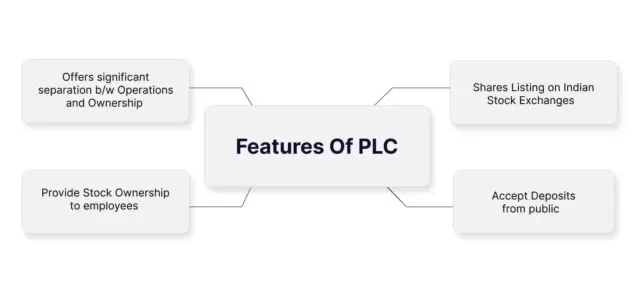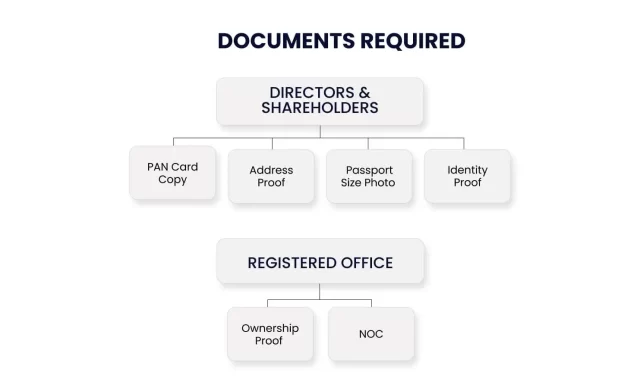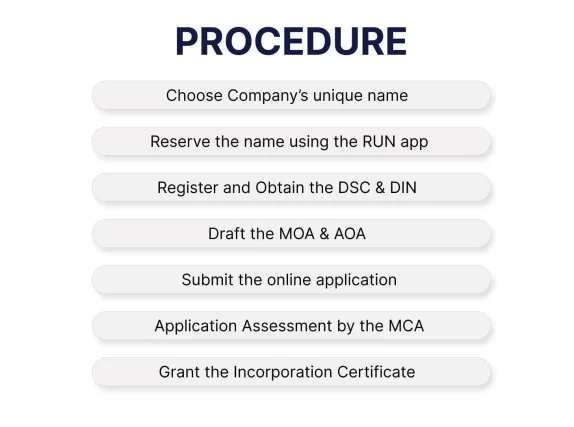Start Your Own Public Limited Company !
Let your business idea soar without limits through the most recognized business format in India! With DisyTax assistance, you can easily and effectively achieve Public Limited Company Registration and transform your business ownership.
Public Limited Company Registration in India
Table of Contents
The Companies Act, 2013 (‘Act’) regulates the establishment and working of a public limited company. A public limited company offers shares to the general public and has limited liability. Its stock can be acquired by anyone, either privately through Initial Public Offering (IPO) or via trades on the stock market. It is strictly regulated and is required to publish its true financial health to its shareholders.
Why prefer Public Limited Companies?
Public Limited Companies in India are considered a more transparent business model than other business structures. It allows investors to transfer their ownership in the Company without any hassle by just selling the shares.
Public Limited Companies in India are a destination point for Foreign Direct Investment (“FDI”) because, under Foreign Exchange Laws, there are areas open for Public Limited Companies to attract foreign loans and equity participation.
Features of a Public Limited Company India

A Public Limited Company has the following features:
Flexible Structure
A Public Limited Company has the most flexible structure of all Company types. It allows a significant degree of separation between operations and ownership.
Stock Ownership
A Public Company can provide stock ownership or ESOPS to employees. Only Limited Companies are allowed to offer this feature of distributing their stocks among current and prospective employees.
Stock Exchange Listing
Only Public Limited Companies can list their shares on Indian Stock Exchanges such as National Stock Exchange (NSE), Bombay Stock Exchange (BSE), etc. Therefore, the general public can invest in the Company by purchasing its stocks.
Raising Funds through IPOs
Only Public Limited Companies can accept Deposits from the Public under the Companies Act, 2013. This way, the Company can raise more capital for its business operations and size expansion.
Limited Liability
The liability of each shareholder is limited. In simple words, a shareholder of a public limited company isn’t personally responsible for any loss or debts of the company for any amount greater than the amount invested by them.
Growth and expansion opportunities
Due to less risk, there is a perfect opportunity for growing and expanding the business by investing in new projects from the money raised through shares.
Legal Requirements of Public Company India
There are various rules and regulations prescribed under the Act for the formation of a public limited company. Here is what you should keep in mind when registering a public limited company:-
- Minimum 7 shareholders are required to form a public limited company.
- Minimum of 3 directors is required to form a public limited company.
- A minimum authorised share capital of Rs. 1 lakh is required.
- Digital Signature Certificate (DSC) of one of the directors is needed while submitting self-attested copies of identity and address proof.
- Directors of the proposed company will need a Director Identification Number (DIN).
- The name of the company must be as per the provision of the Company Act and Rules.
- Documents like the Memorandum of Association (MOA), Articles of Association (AOA) and duly filled Form DIR – 12 is needed.
- Payment of the prescribed registration fees to the ROC is required.
Documents required for Public Limited Company Registration in India

In regard to the Public Limited Company registration, the following documents are needed:-
Directors and Shareholders
- Copy of PAN Card
- Identity Proof:
- Voter Card
- Passport
- Driving Licence
- Address Proof:
- Bank Statement
- Mobile Bill
- Telephone Bill
- Electricity Bill
- Recent Passport Size Photo
Registered Office
- Ownership Proof:
- Electricity Bill
- Gas Bill
- Electricity Bill
- Mobile Bill
- NOC (No-Objection Certificate) for Rented Property
Process for Public Limited Company Registration in India

The procedure for Public Limited company registration in India is as follows:-
Step 1: Choosing a unique name for the Company
You must choose a unique name for your public limited company. Make sure the name you’ve chosen doesn’t already exist. For this, you can use our company search tool.
Step 2: Reserving the name of the Public Limited company using the RUN application
After choosing your company name, you must get it reserved by filing the Reserve Unique Name (RUN) application with the Ministry of Corporate Affairs (MCA). If the name is approved, the reservation will stay valid for 20 days from the date of the approval.
Step 3: Obtaining the DSC and DIN of the directors of the Company
For incorporation of a public limited company, you must obtain a Digital Signature Certificate (DSC) beforehand as it’ll be required to sign incorporation documents. Additionally, you will also need to obtain a Director Identification Number (DIN) for company directors. For DIN, you need to file form DIR-3 with MCA. For obtaining DSC, you can visit the website of a licensed Certifying Authority (CA) in India and apply there.
Step 4: Drafting MOA and AOA of the Company
Legal documents known as the Memorandum of Association (MOA) and Articles of Association (AOA) specify the goals, internal administration, and organizational structure of a public limited company India. They guarantee the legal and effective operation of a public company and are necessary for public ltd company registration. When drafting a company’s articles of association (AOA) and memorandum of association (MOA), you should incorporate all the necessary clauses and take into account all legal requirements. DSC should be used to sign MoA and AoA.
Step 5: Submitting the online application for Public Limited company incorporation
The SPICe+ stands for Simplified Proforma for Incorporating Company electronically Plus. This web form is a single application to incorporate a company and obtain other MCA services. It is crucial to file the company incorporation form SPICe with all required attachments as this step is necessary for incorporation of a new company.
Step 6: Assessment of the application by the Ministry of Corporate Affairs
The company registration application along with submitted documents will be assessed by the ROC. If the ROC is satisfied with the application, it will grant your business a certificate of incorporation.
Our Assistance in Public Limited Company Registration in India
We at DisyTax provide end-to-end solutions for Public Limited Company registration in India. Our services include:-
- Company name research
- Obtaining DSC and DIN
- MOA and AOA drafting
- Application filing
- Following up with the Ministry of Corporate Affairs
In order to keep up with these requirements, you need the assistance of business experts. Additionally, the Public Limited company registration process in India is something that only experts like CA or CS should handle. So, what are you waiting for? Connect with us for easy incorporation of public limited company India.
FAQs on Public Limited Company
1.What is a Public Limited Company in India?
A Public Limited Company should be the preferred business choice in India if you plan to raise funds from the general public through Initial Public Offering (“IPO”) because public limited companies have been privileged under Securities Laws to access the capital market.
2.How to register an online Public Limited Company?
You can visit the official MCA website and file the incorporation application using the e-form.
3.What is the difference between Private and Public Limited Companies?
A Public Ltd Company in India can offer its shares to the general public, while a Private Ltd Company cannot transfer its share outside the Company.
4.Where can I find the list of Public Limited Companies in India?
You can visit the official MCA portal to access the Public Ltd Company lists in India.
5.What is the Public Limited Company registration fee?
The incorporation fee of the Public Limited Company can depend on the consultancy service you avail for such registration. For cheaper and better quality services, contact DisyTax.
6.What is the Public Limited Company ownership?
A Public Limited Company in India is jointly owned by its directors, members, and shareholders.
7.How can you register your Public Company name?
The name of Public Company in India can be registered using the RUN app on the MCA portal.
8.Who owns a Public Limited Company?
A Public Limited Company in India is jointly owned by its directors, members, and shareholders.
9.What are the Public Limited Company features in India?
A Public Limited Company has the following features:
- Flexible Structure
- Offers stock Ownership
- Stock Exchange Listing
- Raising Funds through IPOs
10.What is an Open Ltd Company?
Every Indian Public Limited Company is an Open Limited Company. Open means the Company is open to trading its share to the general public.
11.What is annual compliance for public limited company?
Public company compliance includes maintaining accounts, preparing financial statements and filing annual returns every financial year.
